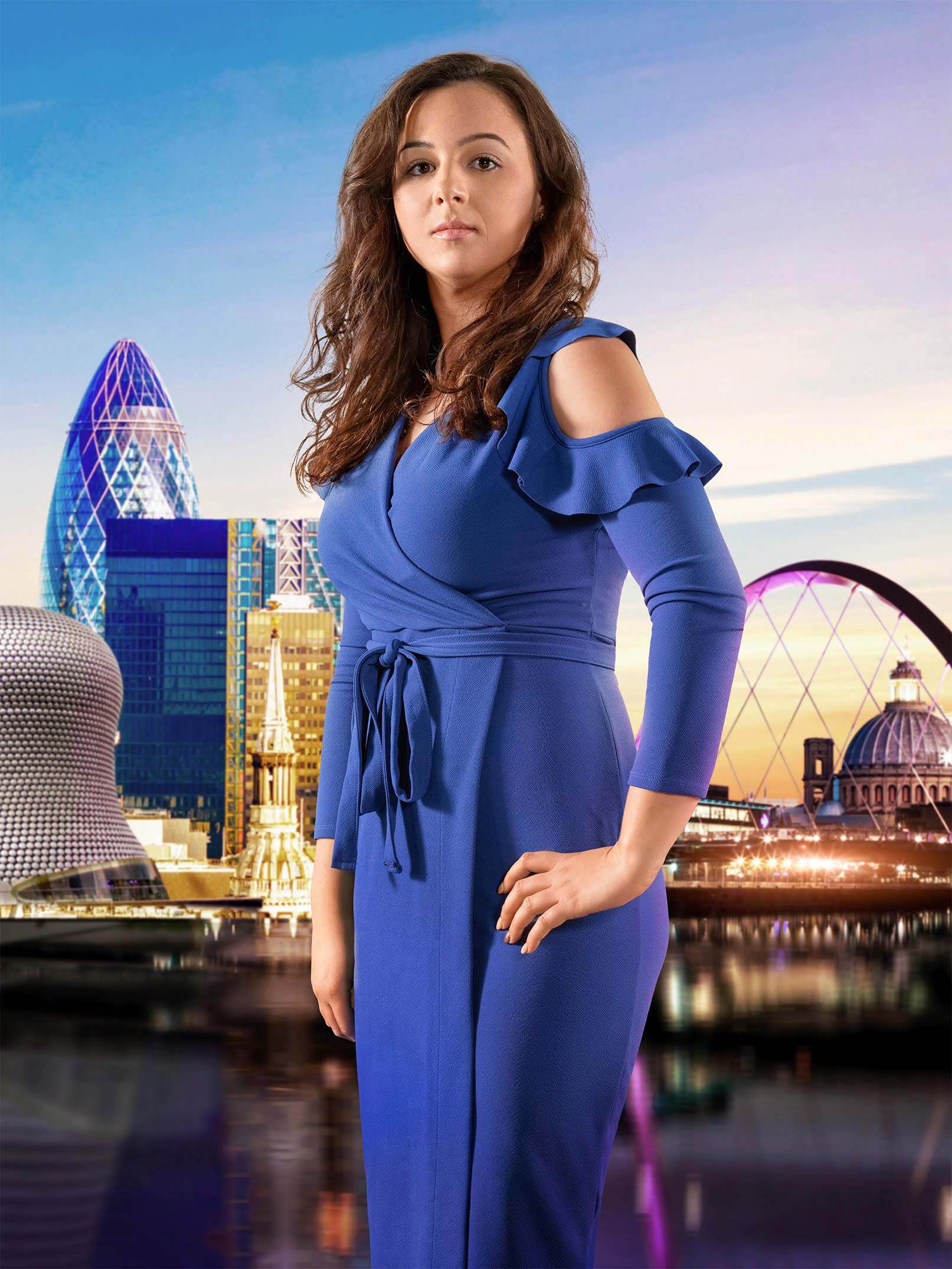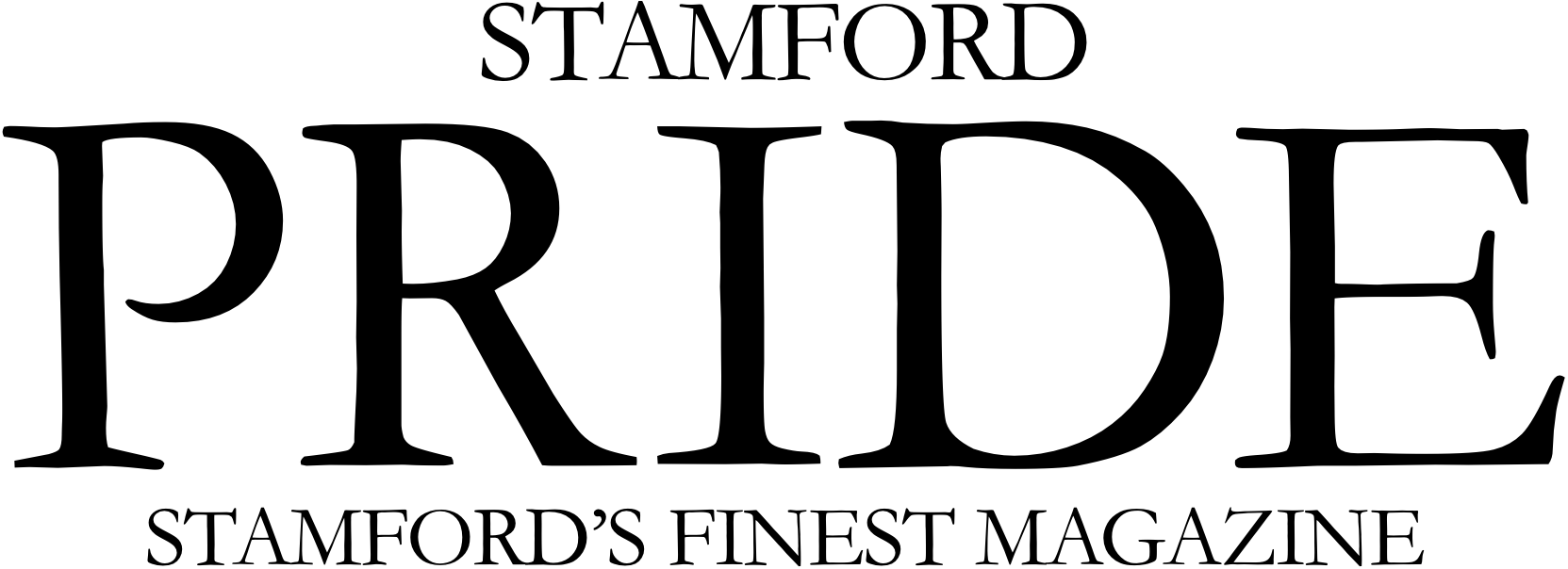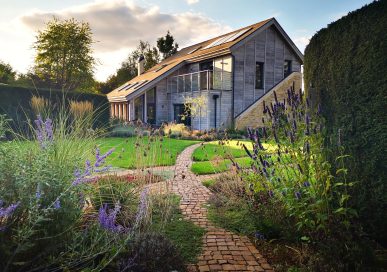The Apprentice Candidate: Khadija Kalifa…
Imagine popping out for a pint of milk one day… only to find that everyone recognises your face. It’s a bit of a paradigm shift, according to Stamford mumpreneur and one of the final three of BBC1’s Apprentice candidates, Khadija Kalifa…
Traditionally a notable person is said to be ‘one in a million.’ It’s more like one in 50,000 where Stamford’s Khadija Kalifa is concerned, because that’s how many hopefuls she saw off to become one of the fianl three competitors on series 11 of BBC1’s The Apprentice.
Ask any candidate what motivates them and you’ll hear the usual truculent declarations that they’re born to sell, motivated to make millions or determined to become the next Sir Alan Sugar etc., etc.
Whilst Khadija is by no means lacking in ambition, there’s a simpler, but no less compelling reason she’s fighting for a business investment from Britain’s most irascible businessman, the 95th richest person in the UK, whose personal worth is valued in excess of £1.15bn. It is – and has always been – about making a great life for her two daughters, Sorayah & Taaliah and her partner Simon.
From 50,000 wannabes, Khadija is looking to grow her business, but was often branded aggressive by some fellow competitors. To find out if that was an unfair characterisation or whether it’s all in the editing of the programme, we relentlessly pursued and finally met the immensely busy Khadija in Stamford’s Cosy Club for a chat about what impact appearing on The Apprentice has had on her life.
Have you always lived in the area?
Yes. I was born in Peterborough. My mother was a single parent and I’m the eldest of four siblings. I never met my dad but mum was always a superb parent and a superb role model. She worked so hard and gave me my work ethic and my determination to succeed.
I was schooled locally and went off to study for a law degree at the University of Middlesex. I worked for a while at the Financial Ombudsman. But when I had my first child I wanted to move back to the area – Bourne, and eventually Stamford – so I began looking for a new life that would complement, rather than compromise, my ability to be a mum.
And that was compounded by difficulties in your daughter’s birth?
It was. Sorayah is four years old now; a lovely little girl who’s meeting all of her targets for development. During my pregnancy I remained healthy, I didn’t smoke or drink and I didn’t give birth prematurely. But when she was born, her cord was wrapped around her neck, depriving her of oxygen.
What was the effect of that?
It was a difficult time not just because of the immediate medical concern but because at a time I should have been bonding with her, instead she was receiving medical treatment and even participating in a new neo-natal treatment whereby she was administered xenon gas and given brain-cooling therapy. It’s a treatment which proved successful, and I’m hoping that now trials have been conducted it will be ratified as a recommended treatment in the event of similar births.
However, I experienced postnatal anxiety as a result. It was that, combined with the difficult birth, that made me realise I needed to be there for my new family. That’s why I knew that any new career or any role in business has to segue neatly with caring for my children.
You feel mums shouldn’t have to compromise career and children?
Absolutely not. Everything I’ve done as a business owner has been with a view to making it as easy as possible for mums to have careers as well as children. Contracts to tessellate with the school day so mums aren’t hit by the high cost of childcare, for example.
Do you think mums are a bit of an untapped resource?
They certainly are. The UK and in particular SMEs are missing out on a huge pool of talented and intelligent potential employees. Childcare costs and 9-5 working hours prevent many from working without incurring costs and make it prohibitive or impractical for them to have a career. We almost disable a mum’s ability to work, whilst simultaneously expecting modern women to be both parent and full time worker, earning money for their family.
So what business did you decide on?
It was a very pragmatic decision, really. I researched online for the cheapest businesses to set up and cleaning was what came up. I can clearly remember going into Oakham one day and spending £20 on supplies, then getting some business cards printed. That was it; Opal & Pearl was born, named after my birthstone and my daughter’s birthstone. From that point on it was just a case of hard work and growing the business.
And it grew from there?
It grew from just me to my sister and I. Then we employed our friends too. Eventually we had about 25 people working for us. We had a huge amount of work in the domestic cleaning market and grew the business to the point where we became VAT registered.
From that point on domestic cleaning was less profitable, so we concentrated more on commercial contracts and – latterly – on property management, like serviced offices and apartments, and on interior design. We’ve reduced the number of staff now, we focus on more specialised services and we look after our clients.
Cleaning might be seen by some as a mundane business, but it’s a service that everyone needs, universally. It is ubiquitous, but if two businesses can clean the same floor to the same standard, but one does it well, and communicates well with their client whilst the other doesn’t do it with a smile or a passion to keep their customer happy, the successful one will be the one that gives better service, that communicates and looks after their client better. That’s the spirit of an entrepreneur; I never do anything begrudgingly or wearily, it’s always with enthusiasm and energy and level-headedness. You have to put yourself out there.
That sounds quite practical… not ‘aggressive?’
That’s what some in the process suggested was a character trait of mine. But you have to hold your own among many strong characters when you’re on The Apprentice. All are vying to impress Sir Alan Sugar and if you wait your turn patiently, you’ll either fade into the background or you’d be accused of hiding. Or you’ll be fired!
I put myself forward when nobody else wanted to become Project Manager on the second episode. Finding myself in that role, there was no way I was going home in the second week. We needed to win, and we did. That’s not being aggressive, but it is being determined and I think that’s the second trait of a true entrepreneur.
How does The Apprentice work?
We filmed during spring 2018. Because of the need to keep the outcome a secret there are strict media embargos, non-disclosure agreements and the producers even film two endings to ensure the winner is not revealed in advance.
The production team is large, with four film crews – each with their own producer and researcher – following the main team and sub-team of both groups. The tasks are chosen to test core business skills like sales, negotiation, marketing, teamwork and so on.
There’s an embargo on communication to prevent leaks too and even though candidates who make it to the late stages are away from their families for over two months, only one personal phone call a week is permitted and even then the call is monitored.
Each task takes roughly three days; two days plus a ‘board room day,’ but everything you see is real, nothing is staged. Nothing is scripted. Sir Alan doesn’t have a script for the boardroom, or an earpiece; the production team can’t interrupt him or feed him material. Everything he says and all of the decisions he makes are his own.
Do you get on with your competitors?
Again, what you see is a true reflection. It’s obvious that Jackie and I had our differences, but the friendships between myself and Sian – my absolute bestie – and Camilla & Sarah-Anne were genuine.
Living in close quarters with your fellow competitors is tricky. If you’ve had a tense day with your workmates or with a partner you want to get away – either to work or home – but there, you can’t. You’re stuck with each other in a strange dynamic of part-cooperation and part-competitiveness! But we’re all still in touch. We have a messaging group and all chat to each another as the episode airs.
Do you still respect the series having seen it first hand?
Oh yes. It’s been a great experience and I’d do it again in a heartbeat. It has shown me that I can put my mind to anything and made me question how quickly I can accomplish things. I’ve taken just three weeks to launch my own range of Opal & Pearl Home products and if you’d told me before the process that I could do it in that time I wouldn’t have believed it.
What’s it like seeing yourself on TV?
It’s been a difficult watch in places. My preferred thing to do is curl up on the sofa with my partner Simon, and on several occasions he’s noticed me shaking. You remember what it was like, you remember when some moments come along where you’ve let your guard down.
When you cry in the board room you’re crying to 8,900,000 people, which is very real to say the least, and in this day and age everyone is able to comment on news sites’ comment sections or on social media. You wear your heart on the sleeve… you’re very very exposed.
What feedback or reactions have you received?
I’ve had loads of support and people have been genuinely lovely on the whole. You do get trolls these days – people can be very cruel from behind a keyboard – but I’m pragmatic about that. You have a button to block them. You can and should do so.
As a businessperson you hire and fire, make and stand by your decisions. And as a parent, too, you do the same. I’ve developed a thick skin over the years and it has been important to retain that thick skin through the process too.
Especially necessary because of Sir Alan’s bluntness? Or is that for show? Nothing is for show. That is his real persona, it’s not for the cameras. But he’s a legend. He’s inspiring, motivating, an iconic entrepreneur. Who wouldn’t want to work for him?
There didn’t seem to be too many ‘comedy’ participants this year?
All of the candidates were credible entrepreneurs compared to other years which have seen some quite quirky people taking place and delivering the occasional cringeworthy soundbite.
I think the other really great thing about this year’s series, though, was that the women outlasted many of the men and I think that makes a good point about how women are now regarded in business. They’re successful and they’ve been seen to be successful.
Is being a woman an asset in business? Or is there still a ‘glass ceiling?’
I don’t think there’s a glass ceiling at all. If you’re strong-willed and determined, if you don’t succumb to sensitivity you can show off your skills. Women have fought for equality and arguably they’ve achieved it – on the whole – but women can’t expect that equality to be sugar-coated. There’s no chivalry in business. Just business.
What has the series done for you business-wise?
It has certainly raised my profile, given me a forum to be noticed. It’s meant that I have renewed confidence to begin new business ventures like my forthcoming range of home products.
It was a huge thrill recently to put in the order for the first 1,000 units of my new product, a letterbox-sized Opal & Pearl Home-branded set comprising 200ml home mist and 200ml hand wash.
Which you’ll sell exclusively online? Not via retailers?
There are a couple of boutique retailers I’m happy to work with but I don’t want to churn out products en masse. The future of products for the home is purchasing directly from the producer, not through a retailer. Why would I want a retailer to take a cut? Why would I let an intermediary have the relationship with the customer, rather than forming that relationship myself?
These days you can run a business not even from a laptop but from a tablet or smartphone, and that’s what I think an increasing number of women will consider to be valuable as they balance their family and their business interests for the purpose of both supporting themselves, but ensuring a good work/live balance.
I take my youngest daughter, aged two, to soft play areas and whilst she’s having a great time I can catch up on an email or two. My older daughter, meanwhile, has just asked my if mummy can pick her up from school. And I can. I make sure I can.
I can tailor my work hours to suit, and even if I’m working late into the evening after they’ve gone to bed, I have the peace of mind of knowing I’ve not neglected them, that I’ve been there for them and that I’ve been able to have good career but not sacrifice my role as a parent in the process.
What else has helped you to do that?
These days technology is an asset. But I’ve also learned that leveraging business is a good thing. Delegating responsibility is healthy and putting yourself out there to grow a business whilst others are allowed to take responsibility for day-to-day matters frees you up to take a wider view of your business.
You can do lots of things with people and with technology to manage your time and to ensure you’re able to concentrate on what matters. I’ve an online PA, for example, who messages me and helps me to prioritise what matters and what my business priorities should be, taking each day as it comes.
You describe yourself as a mumpreneur?
Yes. There’s been a bit of derision for the term but I stand by it. These days a woman can be both a mum and an entrepreneur. You no longer have to choose. Even if people do ask you for a ‘selfie’ when you pop out to buy a pint of milk… which for now remains a surreal experience!
Khadija Kalifa was one of the final three competitors in series 11 of BBC1’s The Apprentice. She will release her autobiography early in late January 2019. Khadija is also the founder of Opal & Pearl Home.








